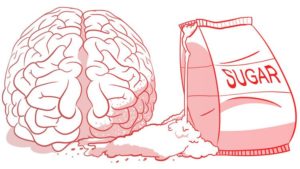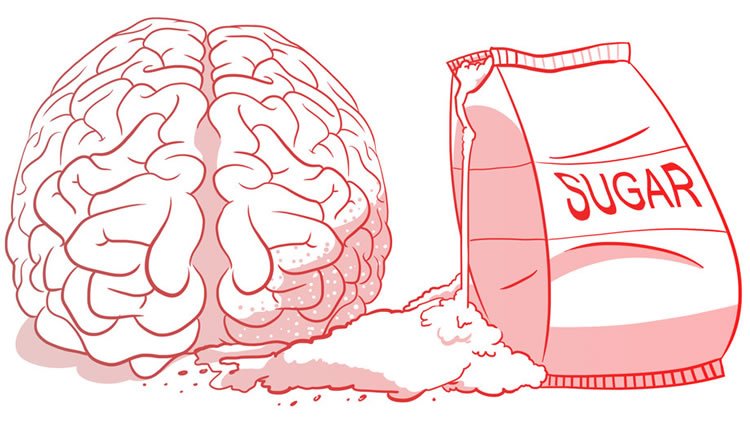What Sugar Does to Your Brain
For many years, we were trained to think that fat is bad for you, and sugar is brain food. We now know that sugar is bad for you, and healthy fat is actually brain food.
 So then, what does sugar do to your brain?
So then, what does sugar do to your brain?
When your tongue receives something sweet, the taste buds signal your brain to turn on a feel-good chemical, dopamine. That’s why when you eat sweets, you want more – you’re activating feel-good chemistry. It acts more like a drug than a food, and some studies have shown that sugar is more addictive than cocaine.
The problem is, too much sugar is bad for the blood vessels in your brain, acting like sandpaper and causing inflammation.
And it gets worse – when the sugar gets to your gut, it triggers your pancreas to make insulin, which tells the cells to scoop up the sugar in your blood, which then makes you feel sugar deficient, so you eat more sweets. This craving cycle may contribute to obesity, diabetes, and circulatory disease, leading to ongoing dietary abuse and poor health.
So what can you do about it? Break the craving cycle by quitting sugar for as little as a week – your body quickly resets your chemistry, and from there on, a small amount of sweets will satisfy your desire, as long as you keep it under control.
So, be kind and supportive to your brain – eat less sugar. Your brain and body will thank you for it.

